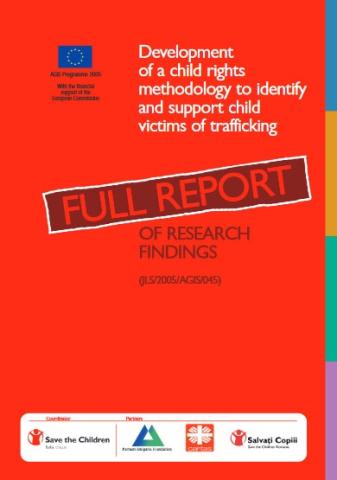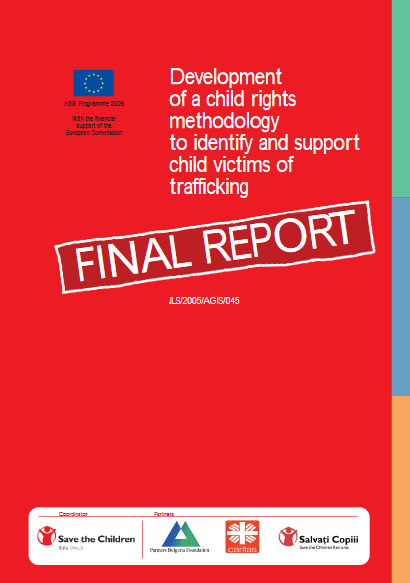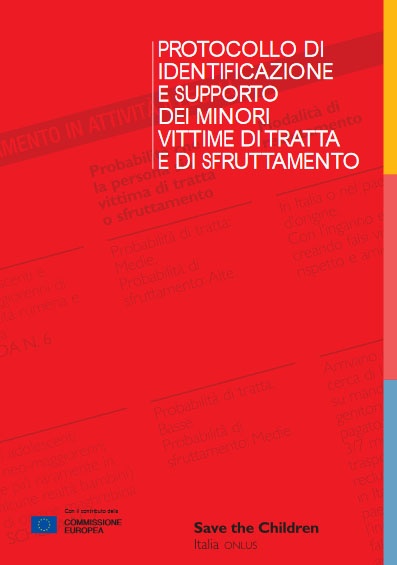Development of a child rights methodology to identify and support child victims of trafficking - Full report
Abstract
Il rapporto presenta i risultati della ricerca condotta nell'ambito del progetto AGIS della durata di 24 mesi, "Sviluppo di una metodologia per i diritti dell'infanzia per identificare e sostenere i bambini vittime della tratta" (JLS/2005/AGIS/045), sostenuto dalla Commissione Europea, nei quattro Paesi del progetto, ovvero Bulgaria, Germania, Romania e Italia. La ricerca evidenzia le principali caratteristiche della tratta di minori, tracciando il profilo delle vittime minorenni, descrivendo il modo in cui vengono reclutate e trasportate e indicando le rotte della tratta e i Paesi coinvolti nel ciclo della tratta. Getta inoltre luce sulle condizioni in cui vivono i bambini prima di essere reclutati e nel corso della tratta, e fornisce alcune informazioni sulle forme di sfruttamento a cui sono sottoposti. La maggior parte delle informazioni raccolte riguarda la tratta a scopo di sfruttamento sessuale e lo sfruttamento in attività illegali e l'accattonaggio. I risultati della ricerca sono confluiti nella metodologia basata sui diritti dell'infanzia per identificare e sostenere i bambini vittime della tratta, che era l'obiettivo principale del progetto. In particolare, la ricerca è stata fondamentale per lo sviluppo di indicatori specifici per l'identificazione delle vittime minorenni.
This Report presents the findings of the research conducted within the 24-month AGIS project, “Development of a Child Rights Methodology to Identify and Support Child Victims of Trafficking” (JLS/2005/AGIS/045), supported by the European Commission, in the four project countries, namely Bulgaria, Germany, Romania and Italy. The research highlights the main characteristics of child trafficking, drawing the profile of child victims, describing the way they are recruited and transported, and indicating trafficking routes and countries involved in the trafficking cycle. It also sheds some light on the conditions children live in before being recruited and in the course of trafficking, and gives some information on the forms of exploitation to which they are subjected. Most of the information gathered concerns trafficking for the purpose of sexual exploitation and exploitation in illegal activities and begging. The research findings have been fed into the child rights based methodology to identify and support child victims of trafficking, which was the main aim of the project. In particular, the research has been key in the development of specific indicators for the identification of child victims.


